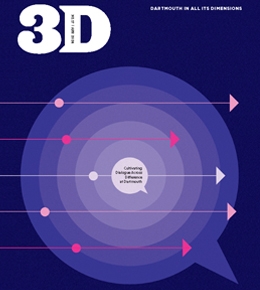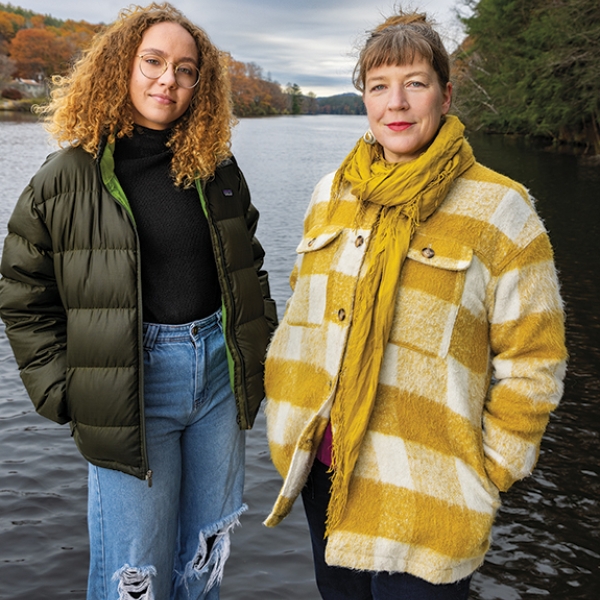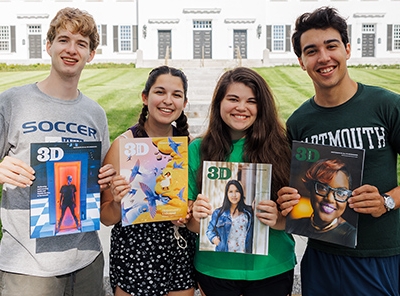When Caroline Conway '24 first arrived at Dartmouth, the COVID-19 pandemic had heightened concerns about mental health and wellness on college campuses across the country. "In my high school, there was no organization or space dedicated to providing support for people experiencing mental illness," she says, "so when I came to Dartmouth, I was in awe of the Mental Health Union. I found this space where students were honest about the problems they were facing and shared resource gaps that they saw."
Today, Caroline is co-president of the Mental Health Union. The student group partners with the Dartmouth Counseling Center, the Student Wellness Center, and Dartmouth faculty to support students experiencing mental health challenges. The MHU's peer ambassador network is a key pillar of its programming, Caroline says. "The goal of the ambassador program is to equip students with the tools to center conversations about mental health in their respective spaces."
The history of Alzheimer's disease in her family initially sparked Caroline's interest in brain-based research, but she wasn't sure which subfield she wanted to explore. When she took Functional Neuroimaging of Psychiatric Disorders with David Silbersweig '82, a leading psychiatrist and functional neuroimaging researcher who was a visiting scholar at Dartmouth in 2022, her vision clicked. "We discussed the neuroscience behind mental illness and the emerging field of neuropsychiatry. I wanted to contribute to the valuable role that research plays in the provision of mental health care."
Last year, Caroline earned a Goldwater Scholarship—one of the most prestigious national scholarships for undergraduates conducting research in the natural sciences, engineering, and mathematics—to support her work in psychology professor Mark Thornton's Social Computation, Representation, and Prediction (SCRAP) laboratory. Her work in the lab, which examines how people form impressions of others based on speech recordings, is laying the foundation for her future research career. "My ultimate goal is to use neuroimaging as a tool to improve diagnosis efficiency, create pathways for earlier intervention, and ultimately better understand the neuroscience underlying mental illness."
Today, Caroline is applying for PhD programs and research assistant positions. She finds time for fun and self-care, too, with friends in the Dartmouth Outing Club and Alpha Theta, a gender-
inclusive Greek organization. Looking back on her leadership as a mental health advocate, she reminds students of the value of taking a pause. "Remember, you are one person with a very human capacity. It's okay to fail at things, and sometimes, failure is a good thing. Don't be afraid to explore, but have grace for yourself."
Photograph by Don Hamerman, at the Class of 1978 Life Sciences Center




